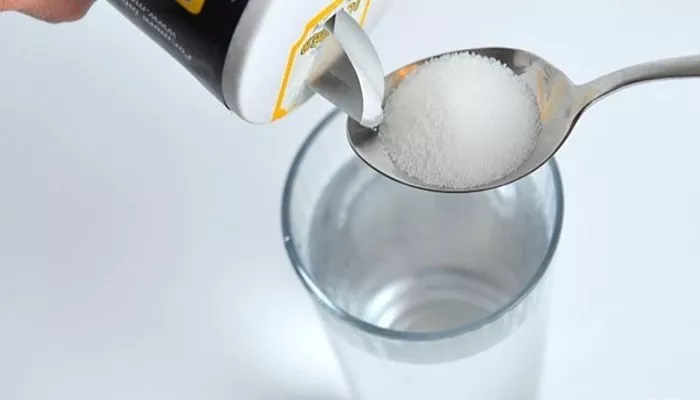Wisdom teeth removal is a common dental procedure that many people undergo in their late teens or early twenties. After the extraction, patients often experience discomfort, swelling, and sometimes infection. One effective home remedy for alleviating these symptoms is rinsing with salt water. This article will guide you through the process of preparing salt water for treating wisdom teeth, its benefits, and tips for effective use.
Understanding The Importance of Salt Water Rinses
Salt water rinses are an age-old remedy used to promote oral health. The saline solution can help reduce inflammation, soothe sore gums, and promote healing after dental procedures. When it comes to wisdom teeth removal, salt water rinses can be particularly beneficial for several reasons:
Reduces Inflammation: Salt has natural anti-inflammatory properties. Rinsing with salt water can help reduce swelling in the gums around the extraction site.
Cleanses the Mouth: Salt water helps to flush out food particles and bacteria from the mouth. This cleansing action can prevent infection and promote healing.
Soothes Discomfort: The warm salt water can provide a soothing effect on sore gums, making it easier to manage pain after surgery.
Promotes Healing: A salt water rinse can create an environment that promotes healing in the mouth. This is especially important after the trauma of tooth extraction.
SEE ALSO: Why Are My Wisdom Teeth Breaking?
Preparing Salt Water for Rinsing
Making a salt water rinse is simple and requires only two ingredients: salt and water. Here’s how to prepare it:
Ingredients
1 cup of warm water: Use distilled or tap water that is warm but not hot. Hot water can cause burns and discomfort.
1/2 teaspoon of salt: Use table salt or sea salt. Both types are effective for this purpose.
Instructions
Measure the Salt: Use a measuring spoon to measure out 1/2 teaspoon of salt. This amount is sufficient for one cup of water.
Heat the Water: If you are using tap water, heat it until it is warm. You can do this in a microwave or on the stove. Make sure the water is not boiling, as boiling water can be too hot for rinsing.
Mix the Ingredients: In a clean cup or bowl, add the measured salt to the warm water. Stir the mixture with a spoon until the salt is completely dissolved. This should take just a few seconds.
Test the Temperature: Before using the salt water rinse, test the temperature with a small amount on your wrist. It should feel warm but not hot.
Use the Rinse: Once the salt is dissolved and the temperature is comfortable, you can use the rinse.
How to Use Salt Water Rinse Effectively
Using the salt water rinse properly can enhance its effectiveness. Here are some steps to follow:
Rinse Gently: Take a mouthful of the salt water rinse and swish it gently around your mouth. Avoid vigorous swishing, as this can disturb the extraction site and cause bleeding.
Focus on the Affected Area: Try to direct the rinse toward the area where your wisdom teeth were removed. This will help cleanse the site and reduce inflammation.
Hold the Rinse: After swishing for about 30 seconds, hold the rinse in your mouth for a few moments to allow it to work on the affected area.
Spit It Out: Spit the salt water into the sink. Avoid swallowing the rinse, as it may contain bacteria and debris from your mouth.
Repeat as Needed: You can use the salt water rinse several times a day. It is often recommended to rinse after meals and before bed to keep the mouth clean.
Frequency of Use
For optimal results, you can use the salt water rinse 2 to 3 times a day. However, if you experience significant discomfort or swelling, you may increase the frequency to every few hours. Always listen to your body and adjust as needed.
Additional Tips for Post-Extraction Care
In addition to using salt water rinses, there are several other steps you can take to ensure a smooth recovery after wisdom teeth removal:
Follow Your Dentist’s Instructions: Always adhere to the post-operative care instructions provided by your dentist or oral surgeon. They may recommend specific rinses or medications.
Stay Hydrated: Drink plenty of fluids to stay hydrated. However, avoid using straws, as the suction can dislodge blood clots and delay healing.
Eat Soft Foods: Stick to a diet of soft foods like yogurt, applesauce, and mashed potatoes for the first few days. Avoid hard, crunchy, or spicy foods that can irritate the extraction site.
Manage Pain and Swelling: Use over-the-counter pain relievers as recommended by your dentist. Applying a cold compress to the outside of your cheek can also help reduce swelling.
Avoid Smoking and Alcohol: Both smoking and alcohol can hinder the healing process. It is best to avoid these substances for at least a few days after surgery.
Watch for Complications: Keep an eye out for signs of infection, such as increased pain, swelling, or discharge from the extraction site. If you notice any concerning symptoms, contact your dentist immediately.
When to Seek Professional Help
While salt water rinses can be beneficial, it is essential to recognize when professional help is needed. If you experience any of the following, contact your dentist:
Severe Pain: If your pain worsens instead of improving, it may indicate a complication.
Persistent Swelling: Swelling that does not subside after a few days may be a sign of infection.
Fever: A fever may indicate an infection that requires medical attention.
Difficulty Swallowing or Breathing: If you have trouble swallowing or breathing, seek emergency medical help.
Conclusion
Preparing a salt water rinse for treating wisdom teeth is a simple and effective way to promote healing and reduce discomfort after extraction. By combining just salt and warm water, you can create a soothing solution that helps cleanse the mouth and support recovery. Remember to use the rinse gently and follow additional post-operative care instructions for the best results.

